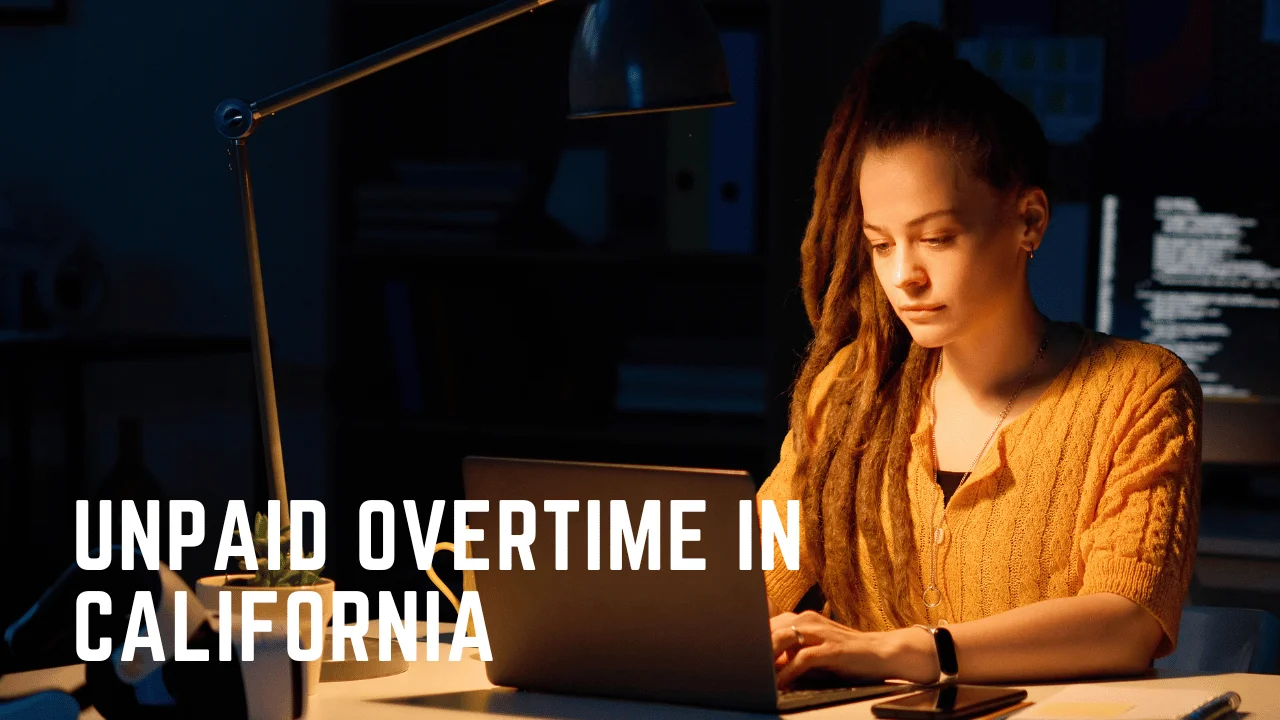In the realm of labor law, disputes regarding unpaid overtime in California are increasingly prevalent. The intricacies of state-specific regulations, coupled with the complexities of federal legislation, can often lead to misunderstandings between employers and employees concerning overtime compensation. This subsequently opens up the possibility of a lawsuit.
As an employee, knowing your rights and understanding the legal procedures involved in filing such a lawsuit is paramount. Similarly, as an employer, being aware of these laws and regulations can prevent costly legal disputes. While it may seem straightforward, the process involves numerous elements that require careful consideration.
Understanding California’s Overtime Laws
Understanding California’s overtime laws is crucial for both employees and employers to adhere to the regulations and to ensure fair compensation for work performed beyond the standard work hours. The laws stipulate that non-exempt workers are entitled to overtime pay for exceeding eight hours in a workday or forty hours in a workweek.
Overtime pay is typically one and a half times the regular hourly rate, and double the regular rate for work beyond specific hours or days. Employers may owe overtime pay even if it was not initially required, should they allow the employee to work extra hours. These laws aim to protect workers from exploitation and enforce equitable compensation for time worked beyond standard hours.
It is paramount that both employees and employers have a solid grasp of these regulations to avoid potential legal disputes.
Legal Remedies for Unpaid Overtime Violations
What recourse do employees have when confronted with violations of overtime laws in California?
Primarily, they can pursue legal action against their employer to recover unpaid overtime, along with interest, attorney fees, and damages. The Labor Code outlines the specific parameters for these remedies, which include liquidated damages and stipulations on the statute of limitations.
Misclassification of employees, for instance, can serve as a basis for a lawsuit. If the violation affects multiple employees, a class action lawsuit may be pursued.
Importantly, employees have a three-year window from the most recent violation to file a lawsuit. Employers are legally prohibited from retaliating against workers who exercise their rights, offering further protection for those seeking justice.
Process of Filing Overtime Lawsuits
Commencing a lawsuit for unpaid overtime in California involves a series of steps, beginning with identifying the potential basis of the overtime violation.
- Consultation: Seek advice from an employment attorney to understand the strength of your case and potential remedies. This step involves examining your work hours, contracts, and payment records.
- Filing a Claim: If you decide to proceed, the next step is to file a claim with the California Labor Commission or in court. The claim should detail the overtime violation and the amount of unpaid wages.
- Litigation Process: After filing, the litigation process begins, including discovery, negotiations, and possibly a trial. The outcome could lead to the recovery of unpaid overtime, damages, and attorney fees, depending on the specifics of your case.
Protection Under California Labor Laws
While navigating the complexities of filing an overtime lawsuit is crucial, it’s equally important to be aware of the protections afforded to employees under California labor laws. Employers are prohibited from retaliating against workers who exercise their rights.
Protections include safeguards against wrongful termination for citing wage and hour violations or filing unpaid wage lawsuits. Whistleblower protection is given to those reporting wage or labor law violations. California labor laws provide legal recourse against adverse employer actions.
Misunderstanding of these laws may expose employees to exploitation. Therefore, it is paramount for workers to understand their rights and protections. Legal representation can guide employees through this process, ensuring fair treatment and protection against retaliation.
Retaliation and Whistleblower Protections
In the realm of California labor laws, retaliation and whistleblower protections hold significant positions, safeguarding employees from punitive actions when they assert their rights or report violations. This protection is critical when employees bring lawsuits for unpaid overtime or when they expose violations of labor laws.
- The California Labor Code Section 1102.5 prohibits employers from retaliating against employees who disclose violations to a government or law enforcement agency.
- The California Whistleblower Protection Act protects state employees who report waste, fraud, abuse of authority, violation of law, or threat to public health.
- Whistleblower protections include but are not limited to, protection from job termination, demotion, suspension, or any other unfavorable changes in the terms and conditions of employment.
Hence, employees can confidently assert their rights without fear of retaliation.
Importance of Legal Representation
Given the intricacies of California labor laws and the protections they offer, it is evident that legal representation plays a pivotal role in ensuring employees’ rights are properly defended and upheld, particularly when dealing with complex issues such as unpaid overtime lawsuits.
A knowledgeable attorney can help employees navigate the challenging terrain of overtime laws, employer classifications, and the legal procedures involved in filing a lawsuit. They provide critical advice on eligibility, potential damages, and timelines for action. Additionally, the attorney becomes a shield against potential retaliation from employers.
Legal representation may also significantly increase the likelihood of a successful outcome, ensuring unpaid overtime, damages, and other due compensations are recovered. Thus, securing legal representation is a crucial step in addressing unpaid overtime issues.
Navigating Lawsuits With Employment Attorneys
Navigating the complexities of filing a lawsuit for unpaid overtime in California becomes significantly more manageable with the guidance and expertise of employment attorneys. These legal professionals play a crucial role in three primary areas:
- Understanding Legal Concepts: They explain the intricate details of California’s overtime laws, helping employees understand their rights and the employer’s obligations.
- Case Preparation and Representation: Attorneys meticulously prepare the case, gather evidence, and represent the employees in court or negotiations, ensuring the best possible outcome.
- Protecting Employee Rights: Legal professionals also safeguard employees from possible retaliation by employers, providing necessary legal counsel and representation.
Conclusion
In conclusion, understanding California’s overtime laws is crucial for both employers and employees. The process of filing overtime lawsuits, whistleblower protections, and the importance of legal representation are key aspects.
Employers should refrain from retaliation against workers exercising their rights, as legal safeguards are in place. In instances of wage and hour law violations, skilled labor and employment attorneys can guide through eligibility, potential damages, and legal proceedings, ensuring justice is served.








